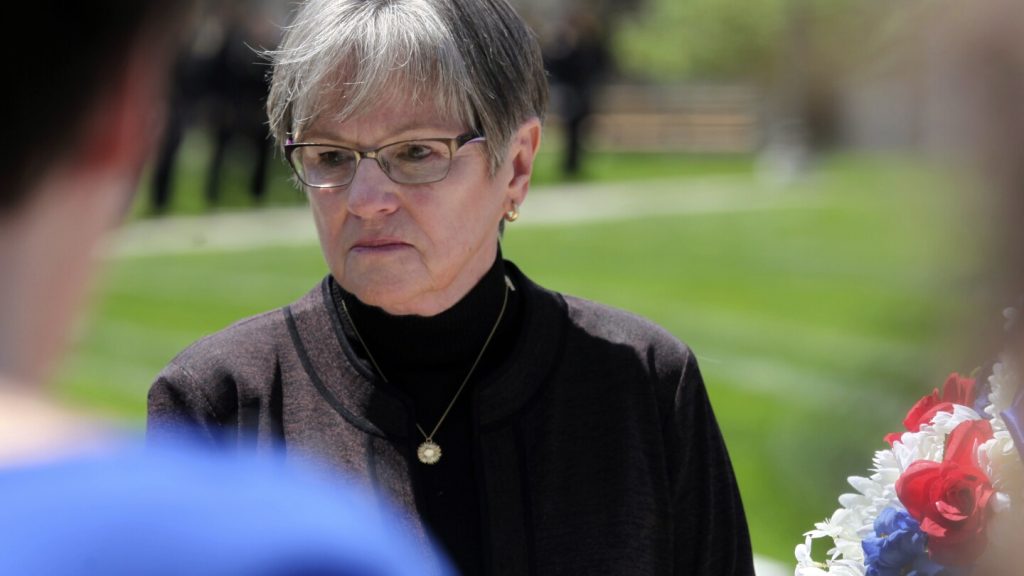Democratic Gov. Laura Kelly of Kansas has vetoed a proposal for broad tax cuts, sparking tension with the Republican-controlled Kansas Legislature. This is the third time Kelly has vetoed a plan for cutting income, sales, and property taxes by over $1.45 billion in the next three years. GOP leaders have expressed frustration as they believe they have made significant concessions and compromises, including giving up on transitioning Kansas from three income tax rates to one. The Legislature adjourned its annual session on May 1, and Kelly plans to call a special legislative session to address the tax plan.
All 40 Senate seats and 125 House seats in Kansas are up for election this year, with Democrats aiming to reduce the Republican supermajorities in both chambers. Both parties are keen on providing broad tax relief after the state has accumulated surplus funds. Critics have accused Kelly of changing her stance on what she finds acceptable in a tax plan. Before the veto, Republicans were already criticizing Kelly for the potential cost of a special session, estimated at over $200,000 for just three days. House Speaker Dan Hawkins described the special session as a frivolous waste of taxpayers’ money.
Despite Republicans making adjustments to the total cost of their tax cuts and scrapping the idea of a single-rate personal income tax, they were unable to secure enough votes to override Kelly’s previous vetoes due to dissent within the GOP. Both Kelly and Republican leaders agree on certain elements of the tax plan, such as eliminating state income taxes on retirees’ Social Security benefits and reducing a state property tax for schools. However, disagreements persist, particularly regarding changes to the personal income tax rate. Kelly vetoed the latest plan citing concerns about future budget implications.
Kelly’s veto message focused on her belief that the latest tax plan could lead to future budget issues, even as the state is projected to end June with a surplus of $2.6 billion in unspent funds. Senate Democratic Leader Dinah Sykes expressed concerns about the bill leading to financial problems by 2028. However, there are contradicting projections, suggesting that the state’s financial situation could improve with better tax collections or reduced spending. Republicans argue that the surplus funds and additional reserves provide a cushion for the state and assert that Kelly should have accepted the last tax plan. Senate President Ty Masterson criticized Kelly’s reasons for vetoing tax relief as shifting and absurd.
The ongoing dispute over tax cuts in Kansas highlights the political divide between Kelly’s administration and the Republican-controlled Legislature. With the upcoming elections, both parties are eager to address the issue of tax relief to appeal to voters, especially in light of the surplus funds in the state. The decision to call a special legislative session reflects the determination of both Kelly and GOP leaders to find a compromise that aligns with their respective priorities. As discussions continue, the fate of the tax plan and its potential impact on Kansas’ financial future remain uncertain.


